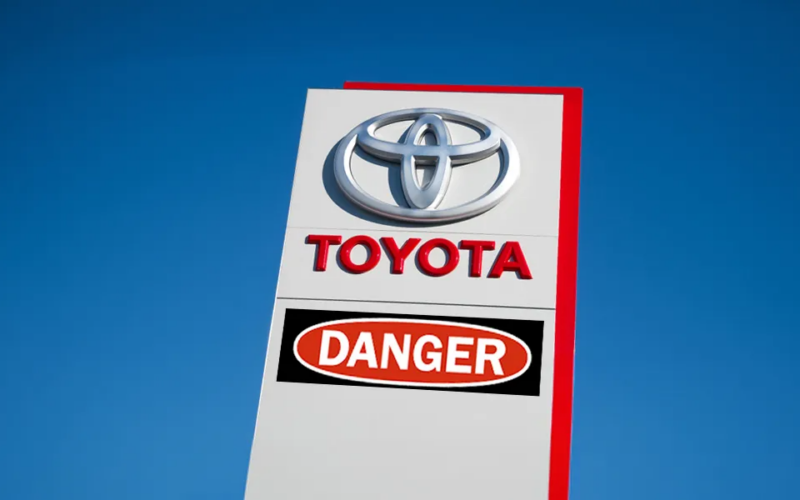Japan’s leading automaker, Toyota, has recently faced significant scrutiny due to multiple scandals involving falsified test certification applications. Despite the potential damage to its reputation, financial analysts remain largely optimistic about the company’s stock performance.
Toyota, along with other major Japanese automakers such as Mazda, Honda, Suzuki, and Yamaha, was implicated in a government investigation revealing the submission of false test data. The probe by Japan’s Ministry of Land, Infrastructure, Transport, and Tourism found that these companies had used incorrect data or falsified vehicles to apply for safety certification. This investigation, announced on June 3, 2024, identified various irregularities in crash test methods and certification processes.
Toyota’s stock has notably declined in response, losing approximately 2.45 trillion yen ($15.62 billion) in market value within a week. The company halted shipments and sales of three models produced in Japan—Corolla Fielder, Corolla Axio, and Yaris Cross—following these revelations.
Toyota’s chairman, Akio Toyoda, publicly apologized to stakeholders and customers. He admitted that seven models were tested using methods that deviated from national standards. This incident adds to a series of recent scandals for Toyota and its subsidiaries.
This is not Toyota’s first encounter with scandal regarding safety and testing standards. In December 2023, Toyota’s subsidiary Daihatsu halted vehicle shipments due to safety concerns. It was discovered that airbag control units in some test models differed from those sold to the public. Additionally, Daihatsu admitted to rigging side-collision safety tests for 88,000 small cars, mostly sold under the Toyota brand.
Hino Motors, Toyota’s truck-making subsidiary, also faced issues in 2022 when it was found to have falsified emissions data on some engines dating back to 2003, affecting over 640,000 vehicles.
Despite the scandals, analysts believe the impact on Toyota’s stock prices and the broader automotive sector will be limited. According to a note by Citi on June 3, the issues uncovered are unlikely to lead to recalls, and there are no significant performance-related concerns. This outlook suggests that while Toyota’s reputation may suffer, the financial impact on its stock is expected to be minimal.
Toyota’s shares, which had declined 8% since the scandal broke, were at their lowest level since February 6, as of June 13. Nonetheless, the long-term investment perspective remains relatively stable, with analysts suggesting the company’s market position and overall performance remain robust despite the recent setbacks.
As Toyota navigates these challenges, it will need to restore trust among consumers and stakeholders. The company’s response to the scandals, including halting affected model sales and issuing public apologies, marks a step towards addressing the issues. However, maintaining its market leadership will require stringent measures to ensure compliance with safety and certification standards moving forward.
The broader implications for the Japanese automotive industry highlight the need for increased transparency and rigorous adherence to testing protocols. For Toyota and its peers, these revelations serve as a critical reminder of the importance of upholding the values of quality and reliability that have long been associated with Japanese manufacturing.
While Toyota’s recent scandals pose a significant reputational challenge, the overall financial impact on its stock remains controlled, with analysts maintaining a cautiously optimistic outlook.








